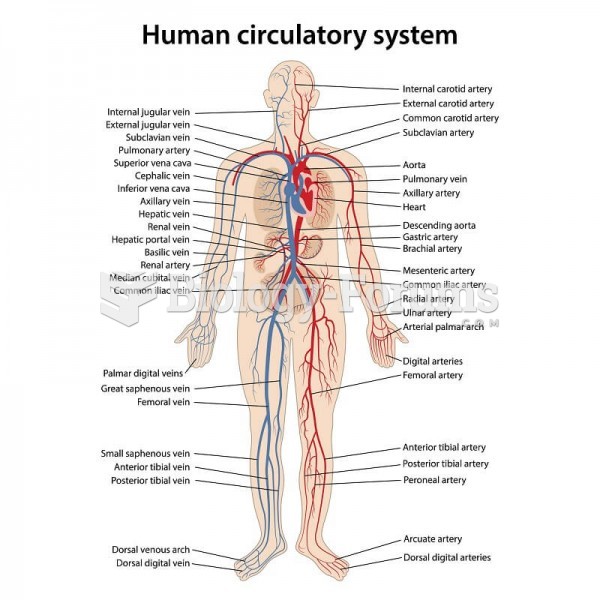|
|
|
Women are 50% to 75% more likely than men to experience an adverse drug reaction.
Although the Roman numeral for the number 4 has always been taught to have been "IV," according to historians, the ancient Romans probably used "IIII" most of the time. This is partially backed up by the fact that early grandfather clocks displayed IIII for the number 4 instead of IV. Early clockmakers apparently thought that the IIII balanced out the VIII (used for the number 8) on the clock face and that it just looked better.
Most childhood vaccines are 90–99% effective in preventing disease. Side effects are rarely serious.
Autoimmune diseases occur when the immune system destroys its own healthy tissues. When this occurs, white blood cells cannot distinguish between pathogens and normal cells.
Earwax has antimicrobial properties that reduce the viability of bacteria and fungus in the human ear.







